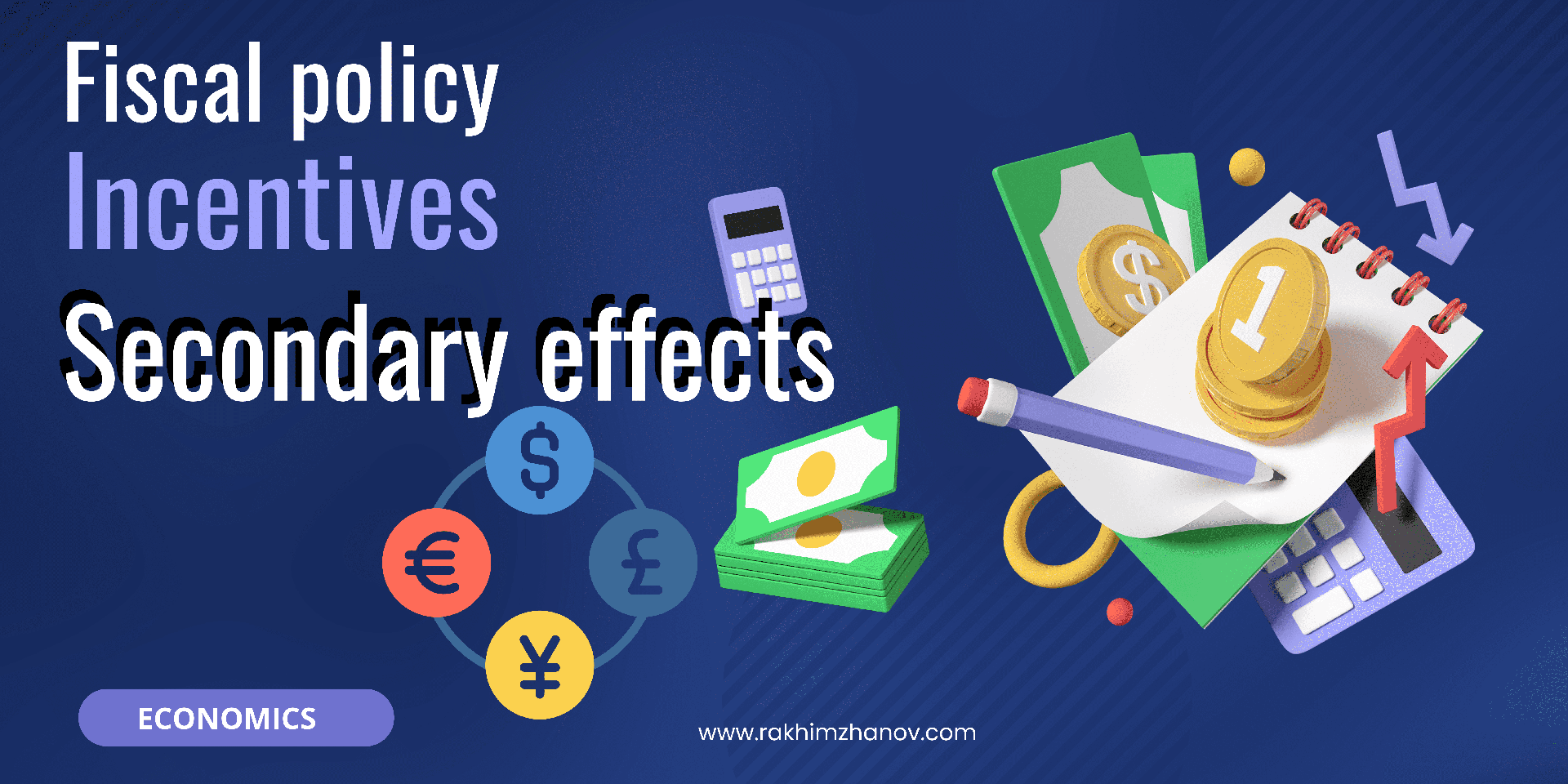Fiscal policy, incentives, and Secondary Effects.
Fiscal policy refers to the actions taken by the government to influence the economy through spending and taxation. The two main tools of fiscal policy are government spending, which can be used to stimulate economic activity, and taxation, which can be used to control inflation and raise revenue.
Incentives refer to the benefits or penalties that are used to encourage or discourage certain behaviors. Fiscal policy can be used to create incentives for individuals and businesses, such as tax breaks for companies that invest in research and development or for individuals that save for retirement.
Secondary effects refer to the unintended consequences of a policy, including any changes in behavior or economic activity that result from the policy. For example, a policy that provides a tax break for businesses might lead to an increase in the prices of goods and services, which would have a secondary effect on inflation.
Fiscal policy, incentives, and secondary effects are closely related and interact in complex ways. Incentives can be used to achieve specific policy goals, but they may also have unintended consequences that need to be considered. Fiscal policy can be used to create incentives, but it also has secondary effects on the economy, such as changes in inflation, employment, and economic growth. Therefore, it is important to carefully consider the potential secondary effects of fiscal policy when designing and implementing it.



